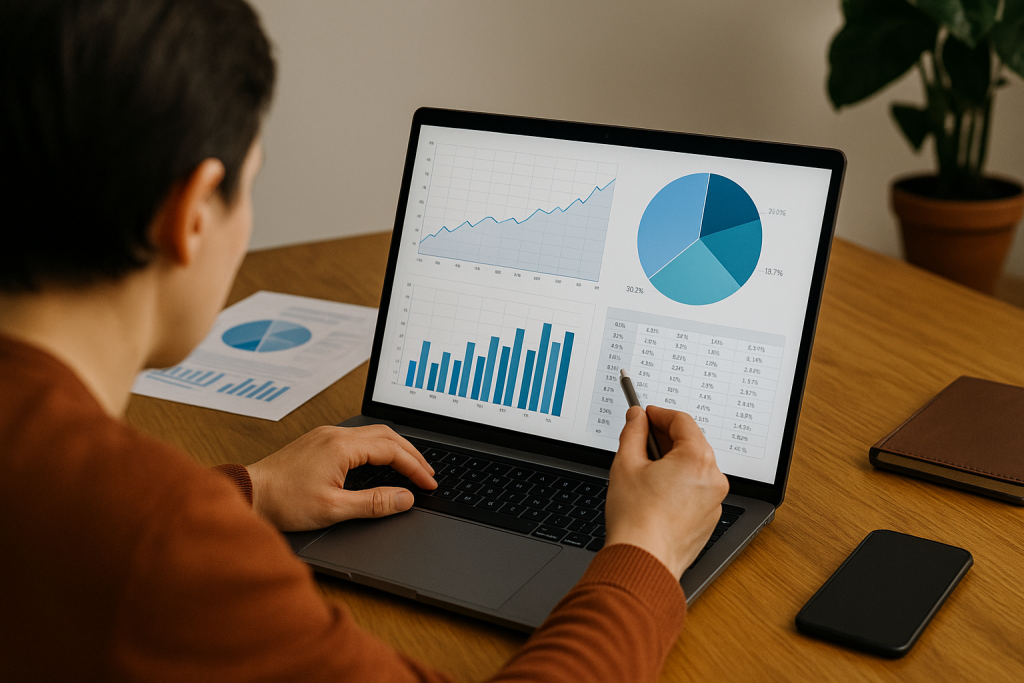Using Big Data for optimizing finances gives you a clear view of where your money goes and how to use it more effectively. It’s not about becoming a finance expert overnight, but about understanding patterns and making decisions based on actual data, not guesswork.
In this article, you’ll learn how Big Data helps improve your personal budget and guide smarter investment choices. We’ll explore how to include it in your routine without overcomplicating your finances or relying on generic financial advice.
Improving personal finance with Big Data

Managing money can feel overwhelming when everything is based on memory or instinct. By using Big Data for optimizing finances, you gain practical insights that help organize your habits, reduce waste, and identify smarter financial routines.
Modern finance apps collect your daily transactions, sort them into categories, and show where adjustments can be made. Instead of general suggestions, you receive personalized guidance built on your real financial behavior over time.
These tools don’t just track your past—they help forecast your future. With automated predictions, you can better prepare for upcoming bills, spot cash flow gaps early, and align your short-term actions with long-term financial goals.
The power of automation and accuracy
Connecting your accounts to an app gives you instant access to a full picture of your finances. These platforms organize your data and deliver custom suggestions without requiring manual entry or constant oversight.
You’ll receive alerts, graphs and summaries that help keep your goals in view. This is how Big Data for optimizing finances simplifies complex decisions—offering structure, transparency and insight with little effort from your side.
Data-driven strategies for better investments
Investing is always about managing risk and opportunity, but doing it without context is difficult. With Big Data, you can see market behavior, asset performance and trends that help inform your decisions with more precision.
Investment platforms now analyze your preferences and risk level, recommending strategies that suit your profile. They help spot inconsistencies in your portfolio and suggest diversification based on up-to-date information and long-term patterns.
This transforms how you choose where to invest—not based on instinct, but on real signals. That’s why Big Data for optimizing finances has become essential for anyone looking to invest with more confidence and control.
Minimizing risks and seizing opportunities
Big Data tools allow you to act before problems escalate. They notify you when market shifts affect your portfolio, highlight underperforming assets, and suggest timely rebalancing to prevent long-term losses based on reliable indicators.
At the same time, they help identify growth opportunities early on. By scanning sector patterns and cross-referencing performance trends, the system reveals undervalued assets and entry points aligned with your strategy—often before the general market reacts.
Why Big Data is key to your financial future
Bringing Big Data for optimizing finances into your life is about using what you already generate—your financial data—to plan ahead and avoid surprises. It turns complexity into clarity and guesswork into grounded action.
The more digital the financial world becomes, the more essential it is to base your decisions on facts. With the right tools, you gain not just numbers, but understanding—and that gives you real power over your financial future.



